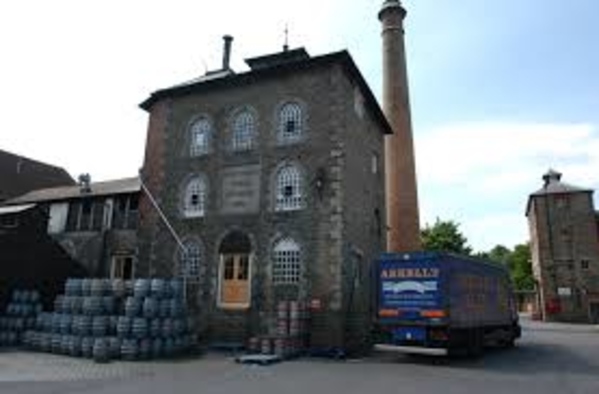Three cheers for Britain's family brewers
Added: Monday, March 12th 2018

It’s celebration time for family brewers. Arkells of Swindon has notched up 175 years and is staging a host of events throughout 2018 to engage beer lovers in the brewery’s notable achievement.
Up in Cumbria, Jennings will think 175 years is small beer as it marks 190 years of brewing. McMullen in Hertford reached the same milestone in 2017.
They are all mere striplings when you consider that Harvey’s in Lewes has been mashing and boiling since 1790 while, to cap them all, Shepherd Neame is officially the country’s oldest brewery, dating from 1698.
The family brewers offer more than fine beer. They are part of the rich tapestry of this country’s history and culture. They have witnessed turbulent wars and the threat of invasion from mainland Europe.
They have seen – and responded to – changing consumer demand. Porter and stout were the great beers of the 18th century and, while pale ale transformed the way beer was made a century later, mild ale remained a massively popular style until the middle of the 20th century.
I recall Miles Jenner at Harvey’s showing me brewing records from the 1950s when around 80 per cent of the brewery’s output was mild ale. Mild is still brewed there today but it lurks in the shadow of one of the most delectable beers known to person kind: Sussex Best Bitter.
So much attention is given today to the modern craft sector that we forget the enormous contribution made to the enjoyment of good beer by the older family brewers. When I went to Arkells at the start of the year, I marvelled at the antique vessels producing the beer, including a wood-jacketed mash tun that has been in situ for all those 175 years.
Head brewer Alex Arkell who, with his brother George, represents the sixth generation of the family, said 75 per cent of his annual production is cask ale. 3B, which stands for Best Bitter Beer, is still the flagship brand even though it has been around since the early 20th century.
But, in common with many of his fellow compatriots, Alex isn’t hidebound and is meeting modern drinkers’ preferences. He has added a golden ale, along with an IPA called HOPeration and an organic beer made with the addition of honey.
Other family brewers are similarly looking to both the future and the past. Batemans in Wainfleet is adding a range of flavoured beers to its range but it has also restored its award-winning XXXB to its original strength and recipe.
Elgood’s in Wisbech has brought back into use some long redundant copper trays known as cool ships and is making, with some success, Belgian-style lambic beers, fermented by wild yeasts in the atmosphere.
Grouped together in the IFBB – Independent Family Brewers of Britain – the members are not hostile to the new generation of producers. A number are conducting collaboration brews, such as Fuller’s and Marble in Manchester who have produced new versions of Gale’s Prize Old Ale, aged in wood.
Charles Wells has sold its Bedford brewery to Marston’s but is not turning its back on brewing. It plans a new 300-barrel plant in the town and its brewer is working with Titanic and other independents to make collaboration beers for the large Wells’ pub estate.
We need to cherish our family brewers. They kept the flag waving during the dog days of the 1970s and 80s when national brewers were digging a grave for tradition and quality as they attempted to force-feed drinkers with unspeakably bad keg beers and apologies for proper lager.
One family brewer said to me: “It’s like when an elderly relative dies and members of the family say ‘We should have gone to see him or her more often’.”
The family brewers are not about to peg it but you can go and see them. You can tour their buildings and revel in the fine architecture and robust vessels. And, above all, enjoy their magnificent contribution to the pleasures of beer drinking.
*First published in What’s Brewing, March 2018.





